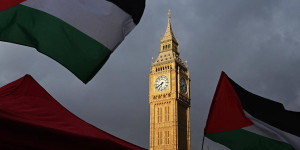Indonesia has expressed strong support for the United Kingdom’s decision to officially recognize the State of Palestine this September, a move seen as a significant step toward achieving full Palestinian statehood and advancing the two-State solution.
Nearly all Permanent Members of the United Nations Security Council, except one, have affirmed Palestine’s statehood, marking a historic shift in international recognition.
This support paves the way for Palestine’s full membership in the United Nations. The Indonesian Ministry of Foreign Affairs (MoFA) reiterated that the right of the Palestinian people to self-determination and statehood is non-negotiable under international law. In a statement, MoFA emphasized that recognition of Palestine must not be made conditional and must be based on established international principles.
“Indonesia calls on all countries to follow the UK’s lead and unconditionally recognize a free and sovereign State of Palestine, based on the 1967 borders with East Jerusalem as its capital,” the statement read on Wednesday, July 30, 2025.
This call aligns with Indonesia’s long-standing position in favor of a peaceful resolution to the Israeli-Palestinian conflict through a two-State solution.
As reported by Guardian, the UK will formally recognize the state of Palestine this September as a result of the “increasingly intolerable” situation on the ground in Gaza, unless Israel abides by a ceasefire and commits to a two-state solution in the Middle East.
Keir Starmer’s cabinet has agreed a roadmap for peace in the region after coming under intense domestic pressure over the mounting humanitarian crisis in the territory, and calls to follow France in acknowledging statehood.
The prime minister recalled his cabinet from their summer break to approve the plan after holding talks with Donald Trump in Scotland. The US president said the issue had not come up, but that he did “not mind” the UK taking a position, even if he would not.
Starmer told his ministers that, because of the catastrophic situation on the ground in Gaza and the diminishing prospect of reaching a two-state solution, now was the right time to finally move.
“Ultimately, the only way to bring this humanitarian crisis to an end is through a long-term settlement,” he told reporters. “Our goal remains a safe and secure Israel alongside a viable and sovereign Palestinian state, but right now, that goal is under pressure like never before.”
He added: “I have always said that we will recognise a Palestinian state as a contribution to a proper peace process, at the moment of maximum impact for the two-state solution. With that solution now under threat, this is the moment to act.”
UN-backed experts said a “worst-case scenario of famine” was playing out in Gaza as the World Food Program (WFP) described the hunger crisis in the territory as the worst seen this century, comparing it to previous famines in Ethiopia and Biafra. Israel has denied its actions in Gaza have caused famine.
It came as the death toll from Israeli attacks in the war passed 60,000 people according to Gaza health ministry figures, almost half of them women and children.
Israel has repeatedly limited aid trucks reaching Gaza during 22 months of war, and halted shipments entirely for six weeks at the start of the war, and between March and mid-May this year.
